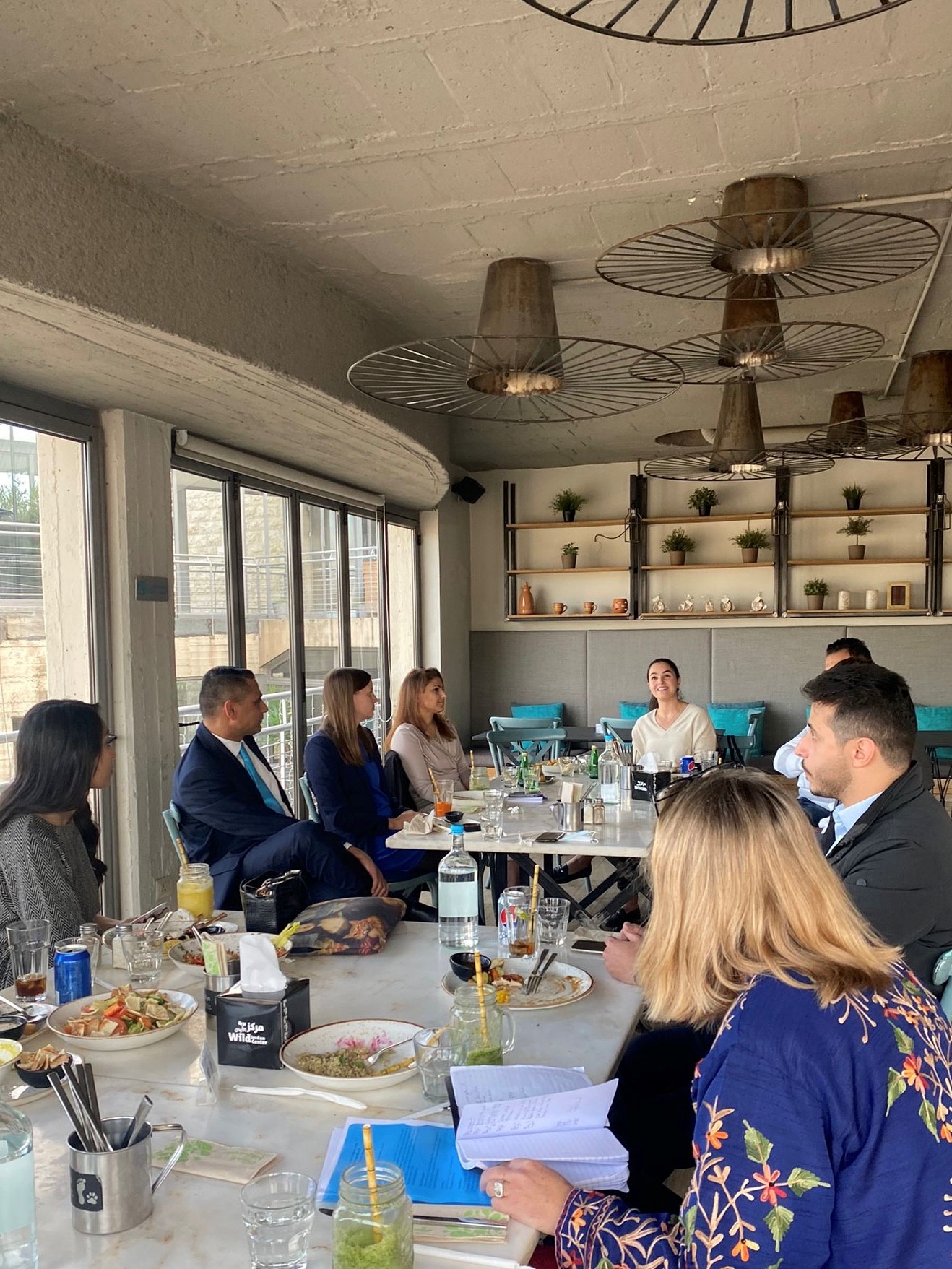On November 24 the Swedish Dialogue institute for the Middle East and North Africa hosted a roundtable discussion on the implementation of the Youth, Peace and Security (YPS) Agenda in the MENA region. The Dialogue Institute invited a group of prominent YPS-advocates and young peacebuilders from Jordan and other countries in the MENA region for an exchange of experiences. It was an opportunity to learn from each other and discuss pathways towards the implementation of the YPS-agenda in the region. It also served as an occasion to introduce the work of the Swedish Dialogue Institute for the Middle East and North Africa, given its recent establishment in Amman.

Participants from Search for Common Ground, Generations for Peace, United Network of Young Peacebuilders (UNOY), the MENA YPS Coalition, the Global YPS Coalition, Jordan Heritage, Seeds of Peace Jordan, Peace First Middle East and North Africa, Embassy of Sweden/Sida, MENA department at the Swedish Ministry for Foreign Affairs and the Swedish Dialogue Institute for the Middle East and North Africa attended the meeting.
The main issues discussed during the meeting were trends and developments in the region, and the value of youth coalitions.
Trends and developments in MENA
Several countries in the MENA region had in the last years been starting to engage on the YPS agenda. Jordanian participants were optimistic about prospects for a National Action Plan on 2250 to be presented in Jordan, with the preliminary adoption within a year or two. Also the Yemen Peace Forum had seen meaningful engagement of youth and increased momentum around the YPS agenda in Yemen. Several participants also stressed the need to work on regional cooperation mechanism for YPS in MENA.
However, many young people in the MENA region are still not aware of the YPS agenda and the MENA YPS Coalition stressed the need to increase efforts to raise awareness. Covid-19 had changed the nature and form of work on YPS, with much of the work moving to the digital arena. This has provided opportunities to build digital skills and cooperation.
Participants mentioned structural issues that need to be addressed, including discussions around identity, ensuring that smaller initiatives are supported and the need to strengthen awareness and the capacity to apply both a gender and a youth lens, not least within government institutions. They also expressed some concern about the trend towards increased securitization of youth by governments. Another challenge mentioned is the increasing NGO-ization of work on youth and YPS. Donor structures have created an “industry” but where real commitment is sometimes missing.
Participating organisations shared information about some of their work, including UNOY who described how they work to support youth-led peacebuilding, by linking local voices to the international level as well as by strengthening personal and organisational capacity. Search for Common Ground described their exploratory work on engaging in dialogue at the national level, using different methods including the creation of civic education tools. Several participants stressed the importance of work at the local level and in engaging with local authorities. They also reminded that change takes time and that projects and programmes therefore need to have a long-term perspective.

Youth coalitions
Jordan, which took the lead in the drafting of UNSCR 2250, set up a national coalition for YPS in 2017. The structure of the coalition has since changed to include more youth-led organisations and the presence of youth in the secretariat. It was also noted that buy-in from the Jordanian government has increased over time, not least with the establishment of a technical YPS unit in the Ministry of Youth and increased institutionalisation of the agenda. The Jordanian YPS coalition has a potential to support the development of coalitions in other countries in the region (e.g. Palestine).
Also, the Global YPS Coalition is looking into the sharing of experiences with different stakeholders, including in the MENA region. The upcoming Doha Conference on YPS was seen as a good opportunity to push the YPS agenda in the region.
It was also mentioned that the Iraqi YPS Coalition was looking over their terms of reference. Questions remained over whether the coalition should be institutionalized in the ministry or whether it should be youth-led.
Conclusion
The meeting provided a good opportunity for the Dialogue Institute to connect with some key Jordanian and regional actors working on the YPS agenda and to gather input for future work by the Institute, Sida and Sweden at large, on how to best foster and support efforts made by young peacebuilders, regional stakeholders, and organisations in the MENA region.